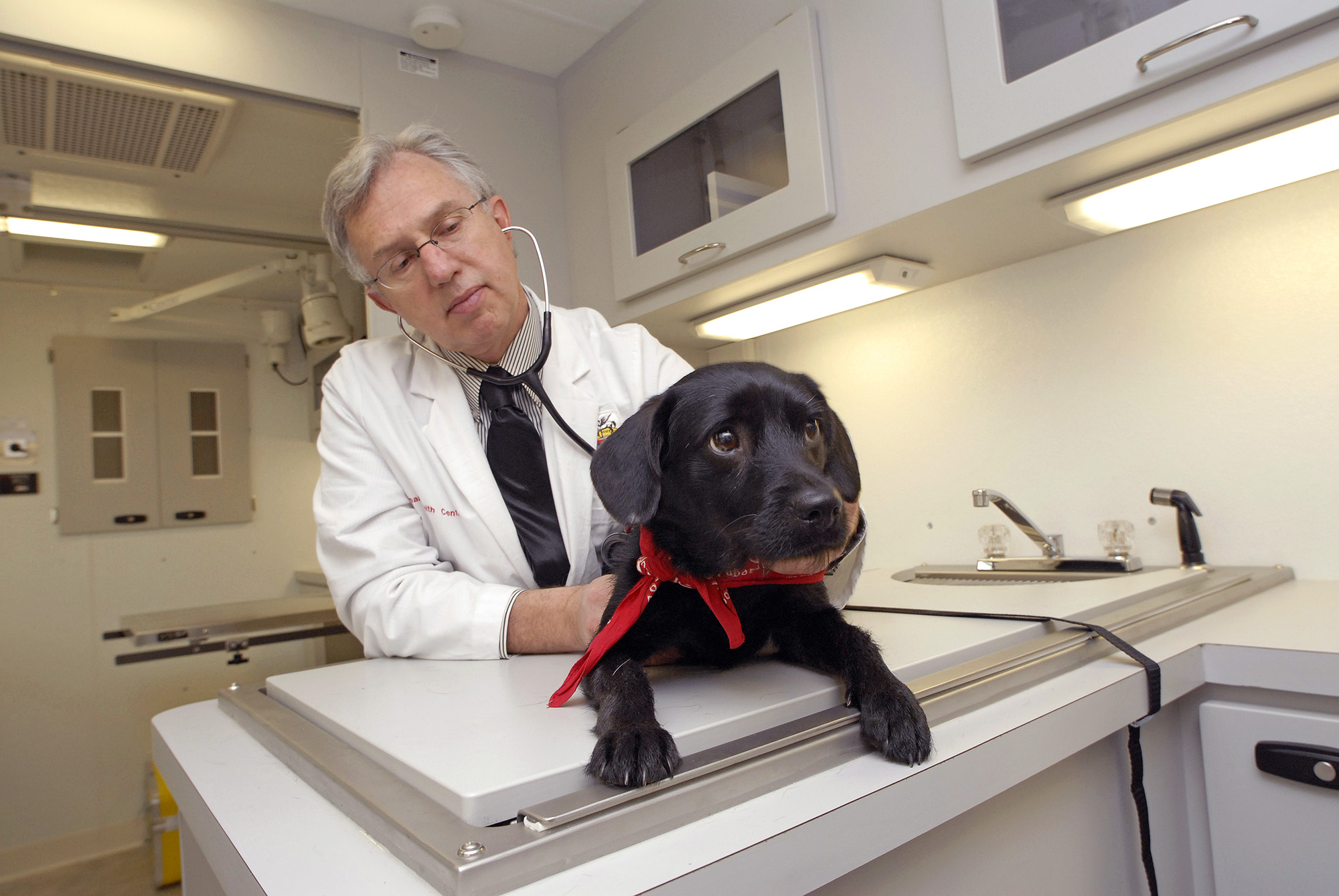Contact: Addie Vaughn

Photo by: Tom Thompson
STARKVILLE, Miss.--The ASPCA is providing a $40,000 grant to help fund a major regional outreach program of Mississippi State University's College of Veterinary Medicine.
The Mobile Spay Neuter Program regularly provides assistance to many North Mississippi animal shelters while also giving veterinary students numerous opportunities for applied experience. The program's two units annually require $200,000 each to operate, according to college officials.
Founded in 1866, the American Society for the Prevention of Cruelty to Animals was the first humane society established in North America and today is one of the world's largest.
"We depend on grant money and donations to keep the university's two units running, and the ASPCA has been very supportive of the program," said Dr. Philip Bushby, MSU veterinary professor emeritus who led in establishing the Magnolia State program and still assists with its efforts.
Bushby said private financial gifts helped open the first mobile unit in 2007 and add a second, larger unit in 2013. "We visit 20 shelters in North Mississippi and have performed over 48,000 spay neuter surgeries with students doing the vast majority of the work," he added.
The veteran faculty member also noted that MSU is leading the way in mobile surgical education and has been a model for some schools starting their own outreach programs.
Bushby cited two major benefits the outreach programs provide, including:
--Helping increase pet adoption rates, thus reducing the number of shelter pets and ultimately lowering operating costs for shelters and the communities that support them.
--Enabling MSU veterinary students to graduate with significantly more surgical experience.
The units make possible a two-week elective course open to all upper-class majors, as well as selected students from external veterinary programs. Since its launch, the class has grown to currently involve 95 percent of MSU veterinary college seniors.
"It's not uncommon for veterinary school students to graduate with only about one-to-three surgical experiences, but students who take the elective average 74 surgeries in the two-week class," Bushby said. "It's a tremendous experience for students and is a win, win, win all the way around."
For additional information about the MSU veterinary college, visit www.cvm.msstate.edu. For details about private support for CVM programs, contact development director Jimmy Kight at 662-325-5893 or jkight@foundation.msstate.edu.
MSU is online at www.msstate.edu.